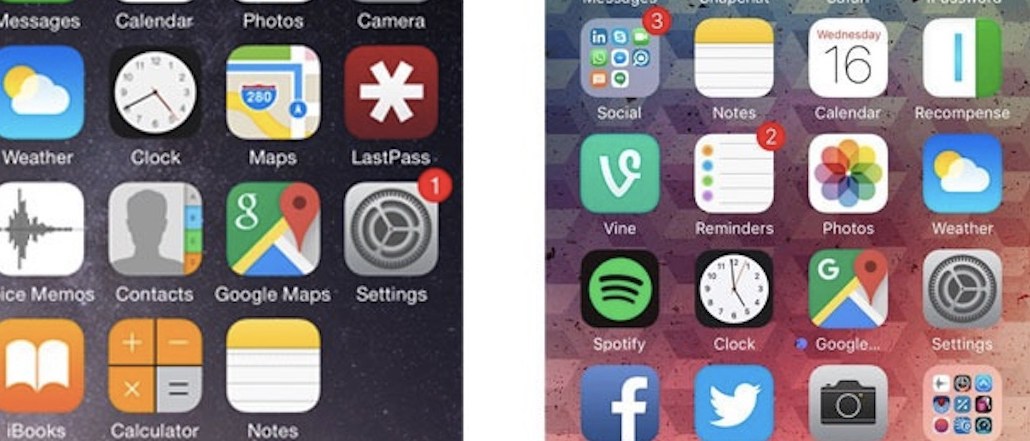Secure your place at the Digiday Media Buying Summit in Nashville, March 2-4
Reactions range from ‘hella ugly’ to ‘obsessed’ on Apple’s new iOS 9 font

As if figuring out how to operating a new operating system wasn’t jarring enough, Apple apparently sent newly christened iOS 9 users into shock by introducing a new font.
The Internet, which is never one to take change well as evidenced when Spotify slightly tweaked its signature green color, convulsed yesterday when Apple suddenly changed the typefaces from Neue Helvetica to a new custom font called San Francisco.
Digging the new font in #iOS9 pic.twitter.com/YQVv7R6LcJ
— Isak Arvidsson (@isakarv) September 16, 2015
It’s the same font used on the Apple Watch, but for people who don’t have the $550 souped-up timer it was an unexpected change that led to varied reaction on Twitter. For example, some people hated it:
I didn’t sign up for this font. Where is helvetica? #iOS9 — damien. (@damienxpat) September 17, 2015
I feel personally victimized by the new iOS9 update. The font is too quirky for my comfort.
— Orion Carloto (@orionnichole) September 17, 2015
Ewwww I hate the new iOS9 font — EMƎ (@EM3_Music) September 16, 2015
The #iOS9 font is hella ugly
— LIV (@livxw) September 16, 2015
iOS9 font looks like I’ve downloaded it off some dodgy Chinese app — Ellie Latham (@ellielaths) September 16, 2015
me, reacting to the iOS 9 font: pic.twitter.com/1fzuWpgH7T
— Bryce McMurray (@BryceM88) September 16, 2015
While others quickly came to grips with the new normal and voiced their support:
Upgraded to iOS9. San Francisco font feels natural and better than Helvetica. — Ryan Scherf (@ryanscherf) September 17, 2015
The iOS9 font changed and it’s like I came home and my wife and kid got haircuts and speak in accents.
— Scott Smith (@ourmaninchicago) September 16, 2015
iOS 9 looks so beautiful, especially with the new font. — TheInnovative (@TheInnoRBLX) September 16, 2015
The iOS 9 font is so aesthetically pleasing. I’m obsessed.
— lauren lum (@lolum32) September 16, 2015
The reaction to the new font is split according to data from Brandwatch. The social measuring firm tracked 3,000 negative comments and 3,300 positive mentions, while the overall sentiment to iOS 9 was 59 percent positive.
Apple announced the shift to San Francisco font in June as part of its project to a use “consistent typographic voice” across all of it websites and devices.
Doing this creates an “ownable brand experience,” Stewart Devlin, CCO of Red Peak Branding, told Digiday. “Apple is not the first to do this but certainly because it is so dominant a provider of consumer technology it is a move that will be noticed and recognized.”
The new font also follows in the larger trend within the industry to use typography that looks better and loads faster on mobile, as exhibited by the recent redesigned Google and Facebook logos.
More in Marketing

WTF are tokens?
When someone sends a prompt or receives a response, the system breaks language into small segments. These fragments are tokens.

AI is changing how retailers select tech partners
The quick rise of artificial intelligence-powered tools has reshaped retailers’ process of selecting technology partners for anything from marketing to supply chain to merchandising.

YouTube’s upmarket TV push still runs on mid-funnel DNA
YouTube is balancing wanting to be premium TV, the short-form powerhouse and a creator economy engine all at once.





